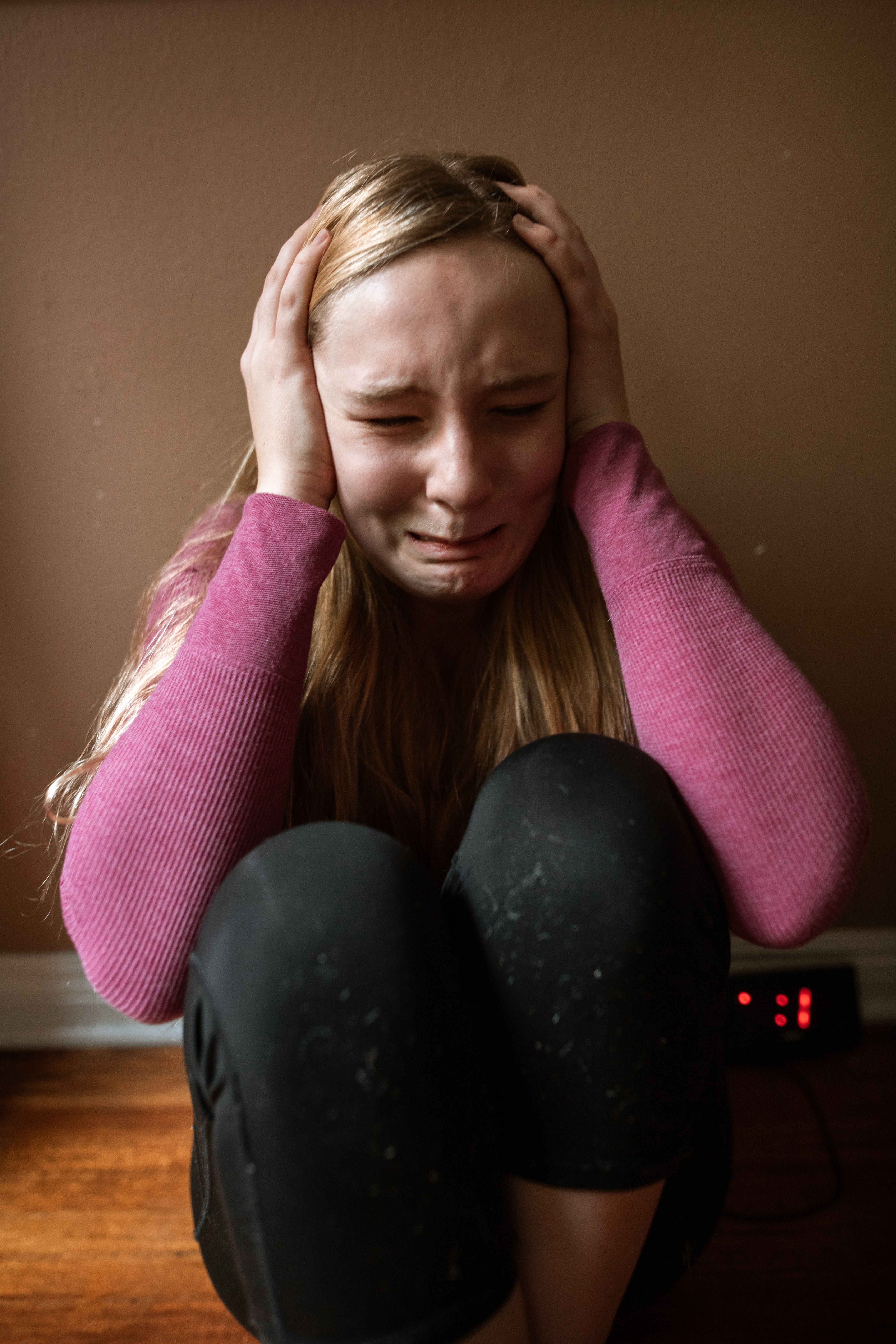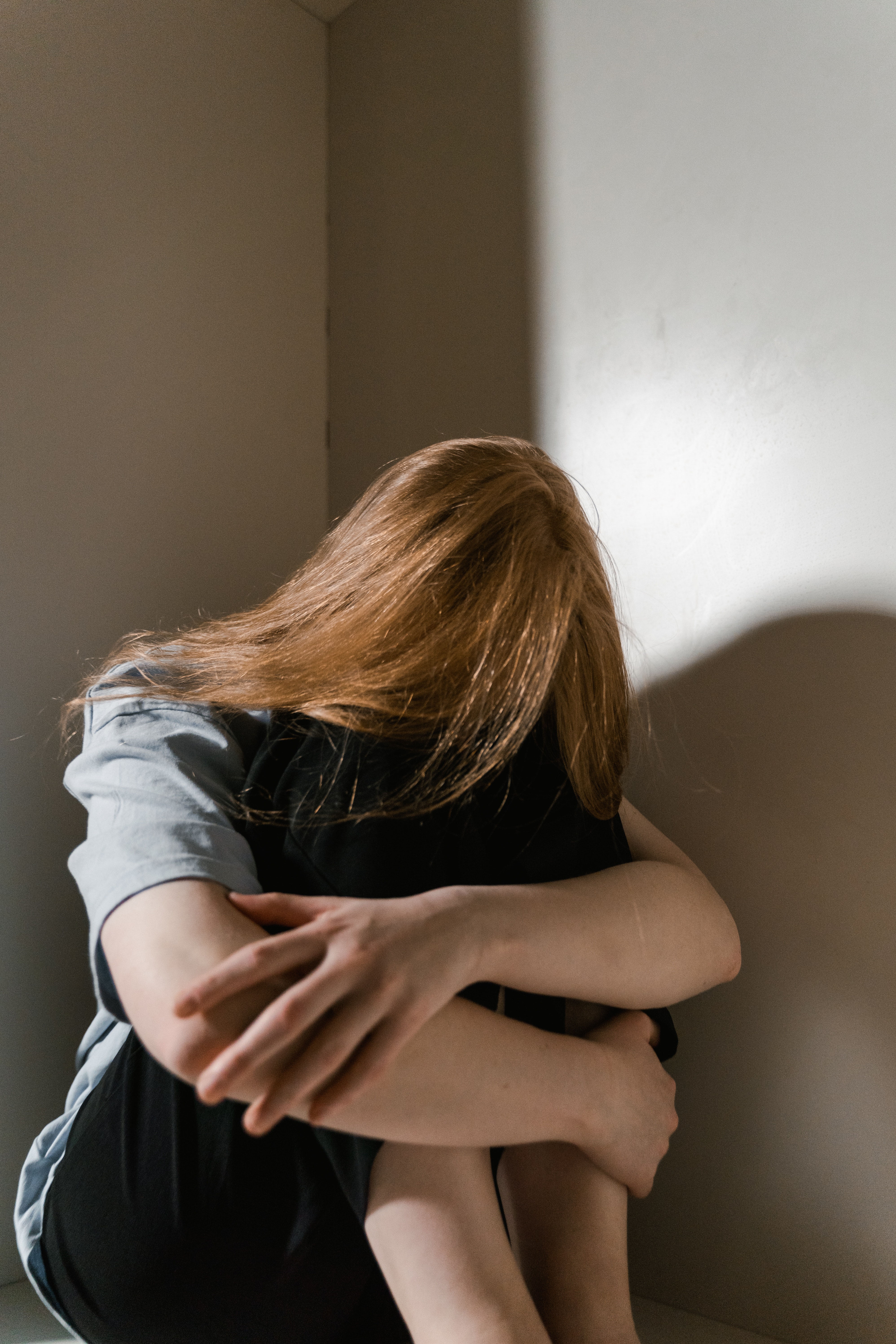
Anxiety. Some people never struggle with it. A little bit of anxiety for them can be a motivator to study for a test, practice lines for a play, or learn math. Those who experience small spurts of anxiety can often perform very well. But when anxiety grows out of bounds it’s no longer motivating. When it explodes into fear, it can freeze you in place, making it extremely difficult to take care of things you need to do. That’s especially difficult for teens in school — including getting ready for college. And when issues crop up like anxiety, panic, and depression in teens, it can be just too much to manage.
Emma’s Anxiety
Take Emma. As a young child in her elementary school, she loved learning to read, working on group projects, and helping with the scenery for the class play. She wasn’t shy… but wasn’t outgoing either. She was just task oriented, good at things, and liked to excel.
But as she got older, social anxiety crept in. Going into a full classroom if she was late made her feel like she would die a thousand deaths. (So she tried very hard to not be late.) The anxiety that built inside her about giving a report in front of the class or participating in group discussions or projects robbed her of the motivation to do a good job. She worried and worried about it and then, exhausted, just wanted to disappear.
Some days she was so exhausted by it all that she just stayed home. Told her mom she had a sore throat or upset stomach.

Then, when Emma was 15, she woke up one day and the anxiety about going to school overwhelmed her. She dropped to the floor crying and couldn’t move. Her mother came in to tell her to get dressed or she’d be late. But Emma couldn’t do anything. She felt frozen and helpless. She cried and cried harder, and told her mother she couldn’t do more than she was doing. Her mom was caught by surprise… but thought Emma was testing her boundaries. She was sick of the drama, tired of the hormones, and wanted Emma to just get up and go to school.
But no matter what her mother said, Emma remained in a heap on the floor.
Anyone who has had a weeping teen knows that you can lead a horse to water but you can’t make them drink. Her mom knew she could try to get her daughter dressed out the door, but she couldn’t force her to participate in school. She decided she better try a different approach.
She asked her daughter what was wrong. Why was she crying? Emma took a long time to answer but finally said she didn’t know what was wrong. So she stayed home again and spent the day relaxing. Anxiety, panic disorder, and depression created a complex knot of overwhelm for this teenage girl.
She took a mental health day.
She took a lot of them.
Eventually, Emma graduated from high school. She was so relieved to be away from that world that she was euphoric… and hoped she’d be ok now.
Emma spent the summer doing things she enjoyed with her closest friend. She didn’t have a ton of friends since social anxiety caused her to stay to herself or with the friend she knew well. In August, it was time to move into the dorm at the college where she was scheduled to start. The last week she was home anxiety choked her. She wasn’t sure she could do this… so many people she didn’t know! How would she register? How could she move into a dorm with a stranger? Who would she eat with?
The fears spun in her mind faster and faster. She felt like she was frozen in a vault unable to communicate with anyone. Her parents tried to help her get ready and pack, though she couldn’t focus on it. They drove her to the campus and helped her carry her boxes to her dorm room.
Then they drove away and she was alone.
Anxiety interferes with life changes
She froze where she stood. She was the first one in the room. And it was small. The terror of being in her room and facing her roommate was too much. She didn’t move. Emma worried that her roommate wouldn’t like her, and she’d have nowhere to escape to get away from her. She finally walked to the library to find a place she could be alone. It wasn’t long before she found a cool, dark corner where she could huddle.

After a couple hours there, Emma forced herself to go back to her dorm, and after standing outside the door for 20 minutes trying to get the courage to go in, she finally held up her card key, buzzed herself in, and walked in. She and her roommate introduced themselves but neither wanted to talk much.
And so it began.
Emma managed to go class, spent her weekends studying in her room or the library, and got through the semester. But once the next semester started, she was in trouble. Anxiety rose more and more until she couldn’t leave her dorm room. She didn’t make it to many classes.
She stayed in her dark dorm room and slept instead of going to class. Emma slept all the time. Kids down the hall and acquaintances from her classes stopped by but she didn’t answer the door. She couldn’t face going outside and walking to class. Couldn’t face other students. She’d gotten so far behind she felt too overwhelmed to fix it. And she was placed on academic probation. Now she had to tell her parents what was going on.
Emma felt so much shame. Abject failure. But no idea what to do to turn this around. She felt like there was something wrong with her. She believed she was just weak. Inept. Worthless.
Social anxiety, panic, and depression were a complex set of problems, on the heels of COVID, that proved too difficult to overcome.
Reaching out for help
She decided—finally—to talk to one of the campus counselors. Even though she had no idea what they could do, Emma knew she needed some sort of help.
The counselor asked lots of in-depth questions about Emma and her history, her school life, and her family life. She got Emma to talk about what her thoughts were when she avoided class. Counseling on campus is short-term. So she gave Emma the name of a psychiatrist nearby who might be able to help.
Emma called her parents and told them what she was going through, about her grades, and about the counselor. She cried — a lot. She asked her parents if they would help her see the psychiatrist. They agreed.
Her visit with the psychiatrist was enlightening. He told her that she had social anxiety, and depression—and probably panic disorder. He prescribed meds that day and she started taking them. But she felt tired, wasn’t sleeping well, and after a couple months she was still getting no relief. She felt no different. He tweaked her meds—a couple of times—and suggested a different therapist to see one-on-one for CBT (cognitive behavioral therapy) for anxiety… but she didn’t want to do that. Her social anxiety was too intense for her to tell her story. All over again.
And then he told her that 30-40% of people with anxiety and/or depression aren’t helped by traditional medicines and treatments.
She wished she’d known that before wasting so many months.
And he gave her the name of a psychiatrist who offered IV ketamine treatment.
Really? How would she know if she was even legit?
Emma called and made an appointment.
But she felt no different after the first infusion. And started to worry—maybe this wasn’t going to work?—even though she knew that it could take a few infusions before her symptoms turned around. The dissociation was interesting… weird but interesting. She hoped it would help.
That panicky feeling calmed a little after the second infusion later that week. Just a bit. But every little bit helped.
A few days later, she went for the third infusion. She felt just a bit better the next day. Not a lot. But a little.

Then, on the day of the 4th infusion, she began to feel less and less anxious, less out of control of her life, less afraid. She could tell it was helping. With the 5th and 6th infusions, she felt better and better… but was still a little shaky as she tried to make arrangement for a new semester. The doctor suggested she come in for another one or two infusions. She was almost there.
After 8 infusions, she wasn’t afraid anymore. The depression was gone. Emma had the courage to face the school officials and made a plan with the campus counselor about repairing the damage to her GPA… She embraced her responsibilities and met with tutors. She started spending time with her roommate (who turned out to be a really nice girl) and they actually became good friends. Emma was so much better that she felt normal.
Anxiety and panic disorder can go together. We call that co-morbidity. (What a word, right?) In Emma’s case, her depression was another whole thing she suffered from. With so much going on, she couldn’t figure out how to function or manage her life.
This is actually pretty common in teens and college students. New stressors—like starting high school or college—can trigger even more severe anxiety. It can bring on depression. And make your teen—or you—shut down.
It’s important for parents to talk with their preteens and teens about mental health symptoms, and seek help when symptoms interfere with daily living. Symptoms like anxiety can be easy to misinterpret or overlook, so it’s really valuable to talk about how they feel. If they learn to talk about their experiences as they go through challenges, it will be easier to identify problems that need to be addressed…and treated.
It will be easier to develop resilience.
And if unexpected symptoms emerge, you’ll be in a better place to help.
If Emma’s experiences sound at all familiar — and if treatment isn’t making a dramatic difference — call us.
We’re here to help you with innovative solutions—and to help you reach for remission.
Let’s see if we can get your life back.

To the restoration of your best self,
